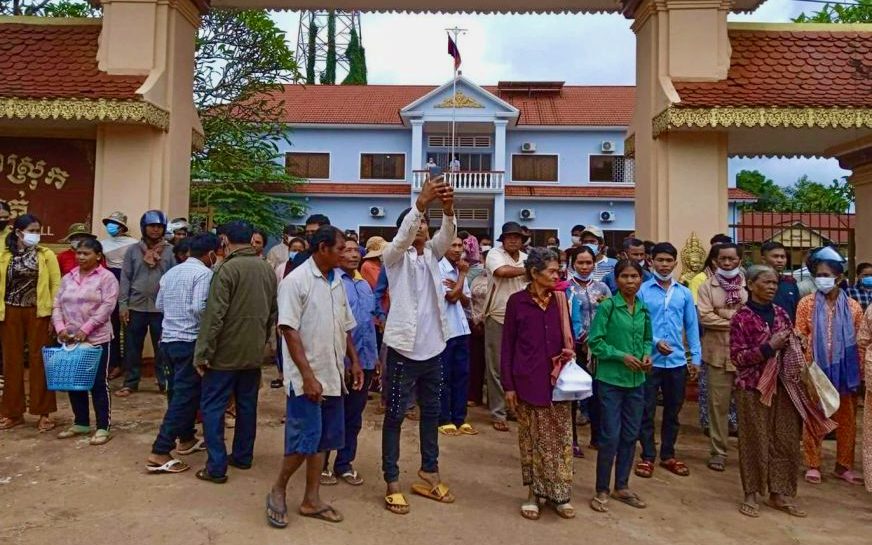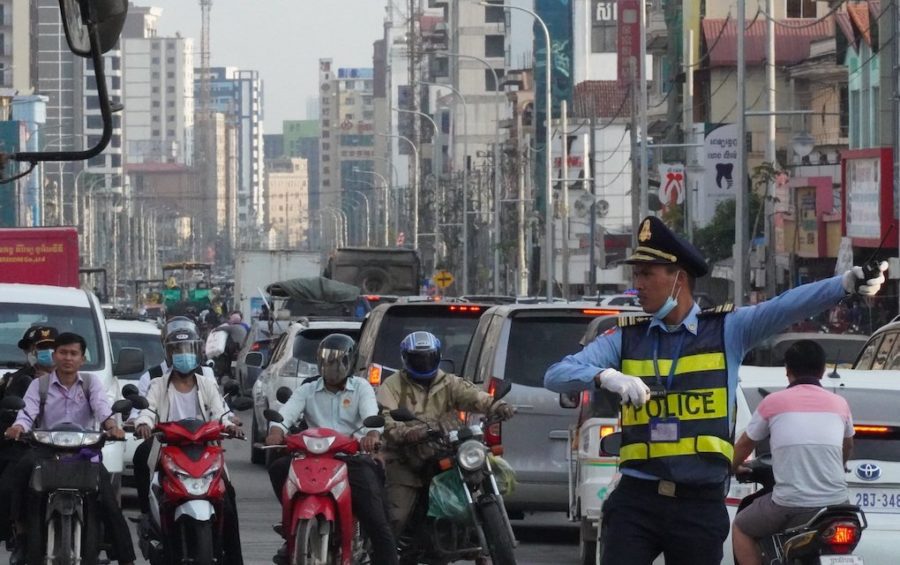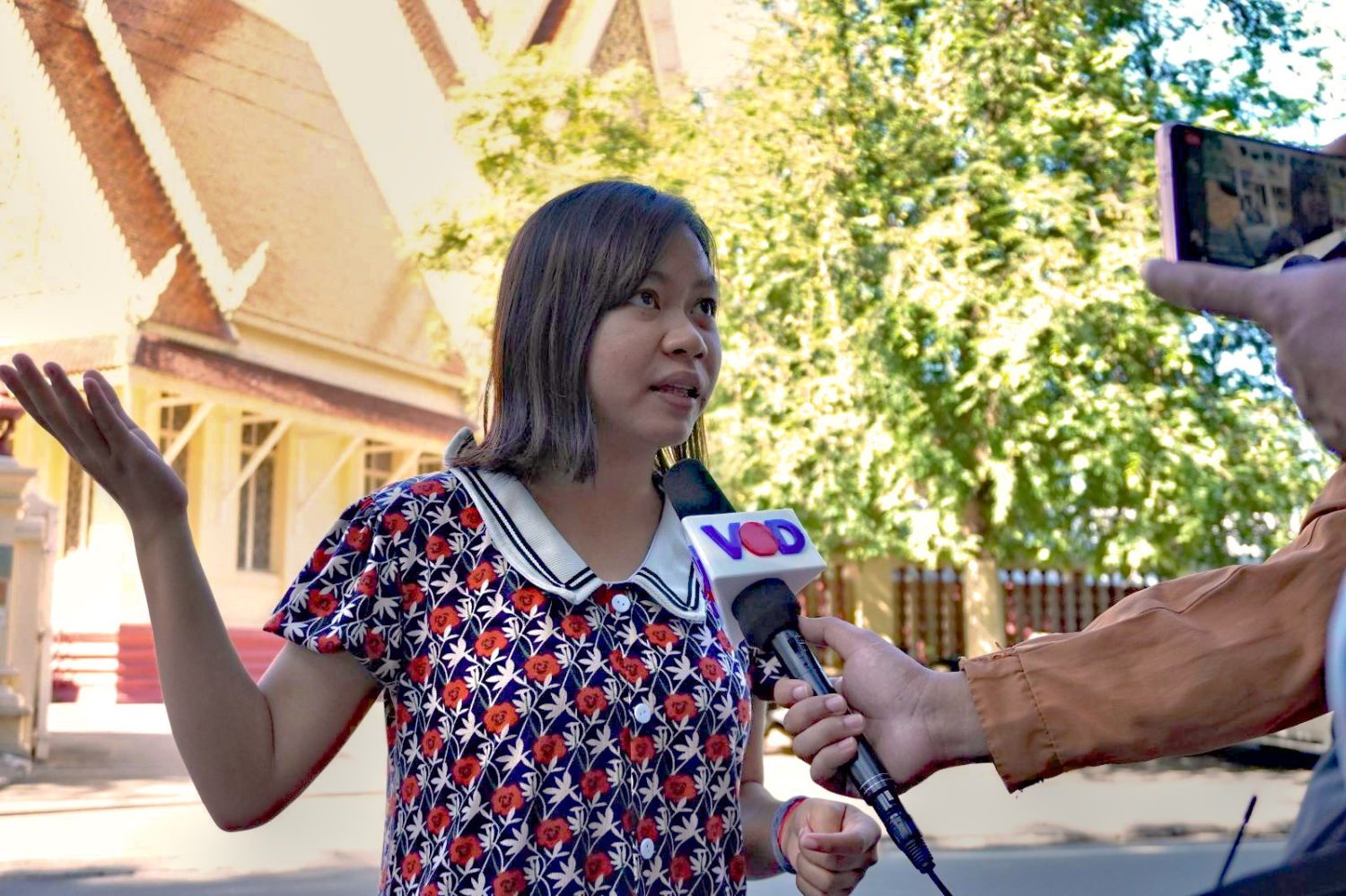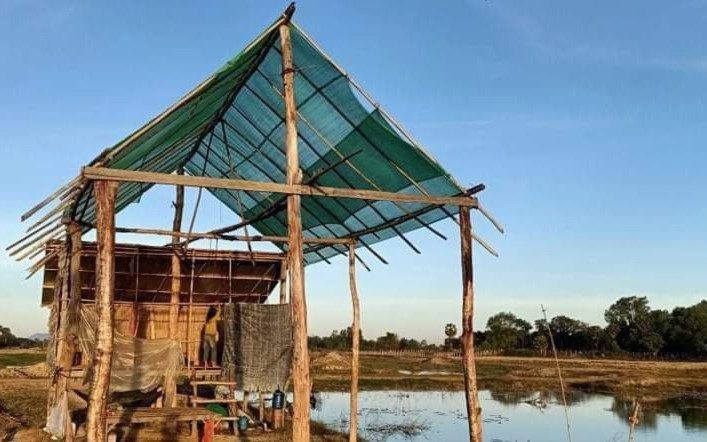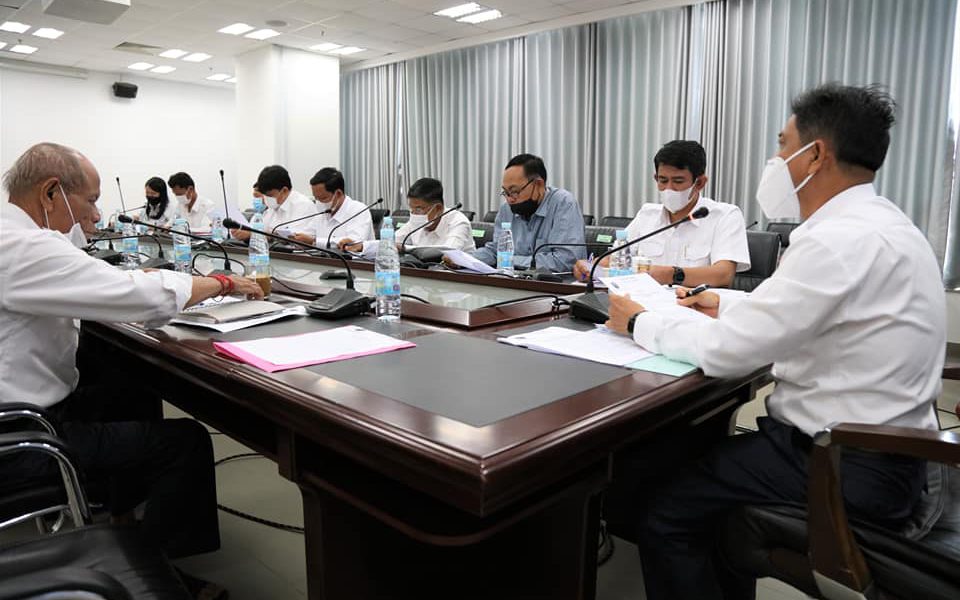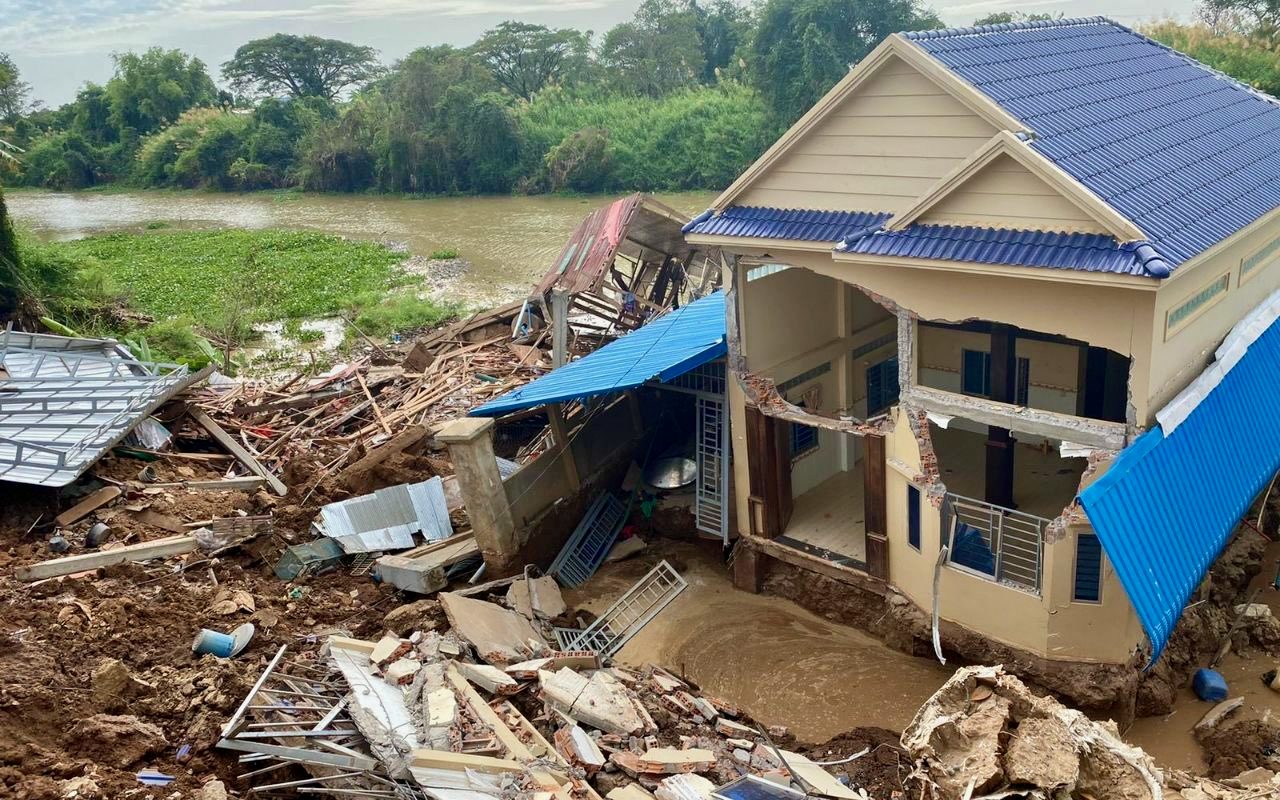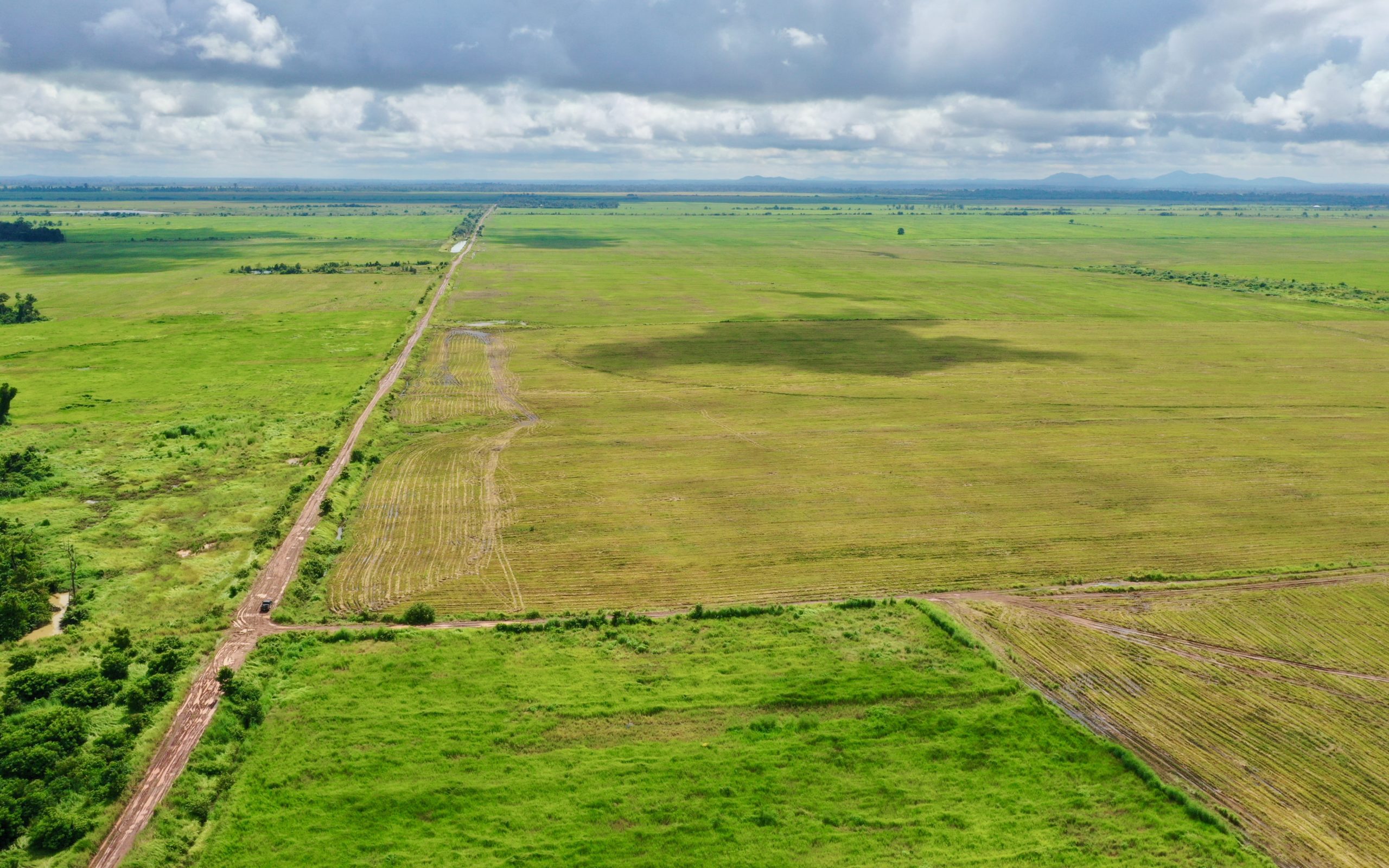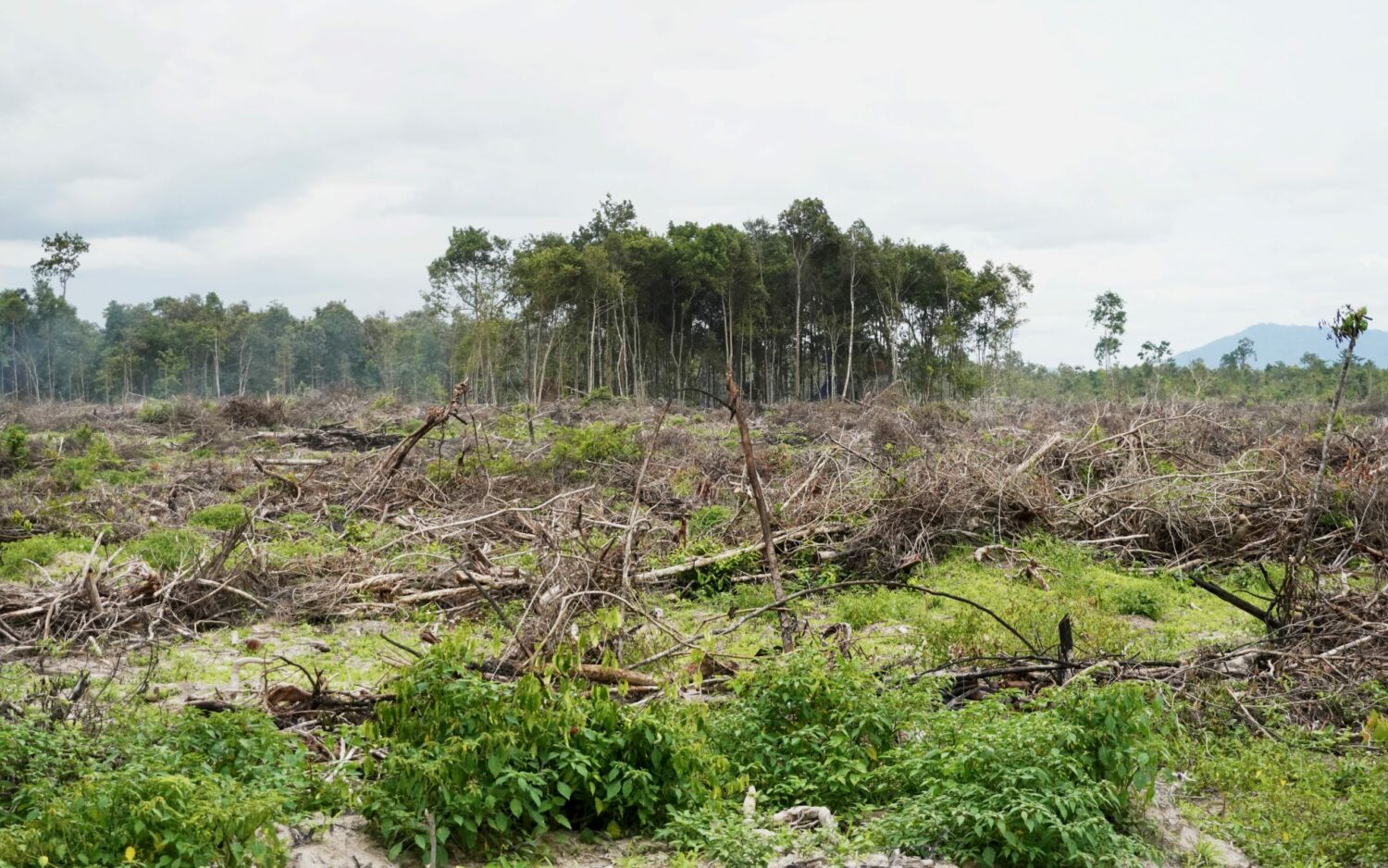Hundreds of people from three different provinces who are involved in prolonged land disputes held separate gatherings this week to ask authorities for help.
On Thursday, more than 400 people representing 557 families from three communities in Koh Kong’s Botum Sakor gathered at the district hall to submit a petition about land loss.
Representative Chum Nov said families lost their land in 2006 to a sugarcane plantation developed by Senator Ly Yong Phat and had yet to receive compensation.
Newly promoted district governor Krouch Borey Seyha denied their petition, leading the residents to protest until the afternoon, she said.
“People don’t have the time to march and protest, but because of the pain of losing land, they pushed themselves to protest, in case they might get that land back for agricultural work because now their children have lost their education and migrated to Thailand,” Nov said.
Chhin Ky, another representative, expressed disappointment over the district governor’s rejection, while Noy Sok said she was facing a court complaint over protesting.
“I appeal to the court to drop charges against us and ask authorities to find a solution for us to end the dispute because we are really victims of losing land,” Sok said.
District governor Borey Seyha said his administration did not accept the petition because authorities had found a resolution to the dispute many years ago, and because the administration had received instructions from the province and Land Management Ministry to not deal with the case any further.
“The case of sugarcane plantation, we have completely closed,” Borey Seyha said. “I’ve explained this to them, but they don’t accept it and keep protesting. I believe that someone is behind this protest. It has a clear organization — that’s why they dare to come and protest.”
In Tbong Khmum on Tuesday, about 130 families from Memot district’s Choam Kravien and Toanloung communes asked district authorities to issue them land titles for 177 disputed hectares.
However, the residents gave different accounts of the dispute, and the district authority said there needed to be a clear representative it could discuss the issue with.
An Sa Un said 50 families had previously lived on 80 hectares along the Vietnamese border, but they were unable to use that land due to border demarcation. Another villager, Sun So, 48, said the families just wanted ownership on land they had lived on for generations. A third villager, who declined to be named due to fear of retribution, said the 177 hectares was a social land concession marked off of a company’s plantation, but the residents never got the promised land titles.
Memot district governor Sreng Ly said he needed a representative to talk over the issue with, and without one, he didn’t know how to tackle the grievances. He said they might have been concerned about taking on the responsibility and risk of being a representative, but it was difficult to address a large group as a whole. If the problem was border demarcations, it would need to be taken up to the national level, he added.
Cambodia Border Committee vice president Koy Pisey said she had no information, but could ask the province to look into it.
Meanwhile, 91 families in Kampong Chhnang gathered last week at the provincial hall alleging the children of a land management official had claimed ownership of land that they lived on.
Over 100 hectares in Teuk Phos district’s Taing Krasaing commune were in dispute, said resident Chhem Soeum. During negotiations at the province with the opposing party, Dos Sovannak and Pech Chakriya, Sovannak had offered just 10 hectares for the residents, Soeum said.
“I, like other people, am very worried and upset. Some cannot sleep these days. Some have land and houses and rice fields,” he said.
Another resident, Kang Sophat, 50, said he was born in the disputed area and had lived on 2 hectares there for a long time.
“People only want their land back. They have only a little land. How could they agree to land being taken away? Local people have three or four children per family, if their land is gone, what do they have for their children?”
Local authorities, however, said that even though the residents had been on the land for decades, the title for it had long belonged to Sovannak and Chakriya.
Ly Sophea, head of the provincial land management department, said negotiations were continuing.
“It has not been fruitful yet, but for now let the people’s representatives continue to discuss,” Sophea said.


